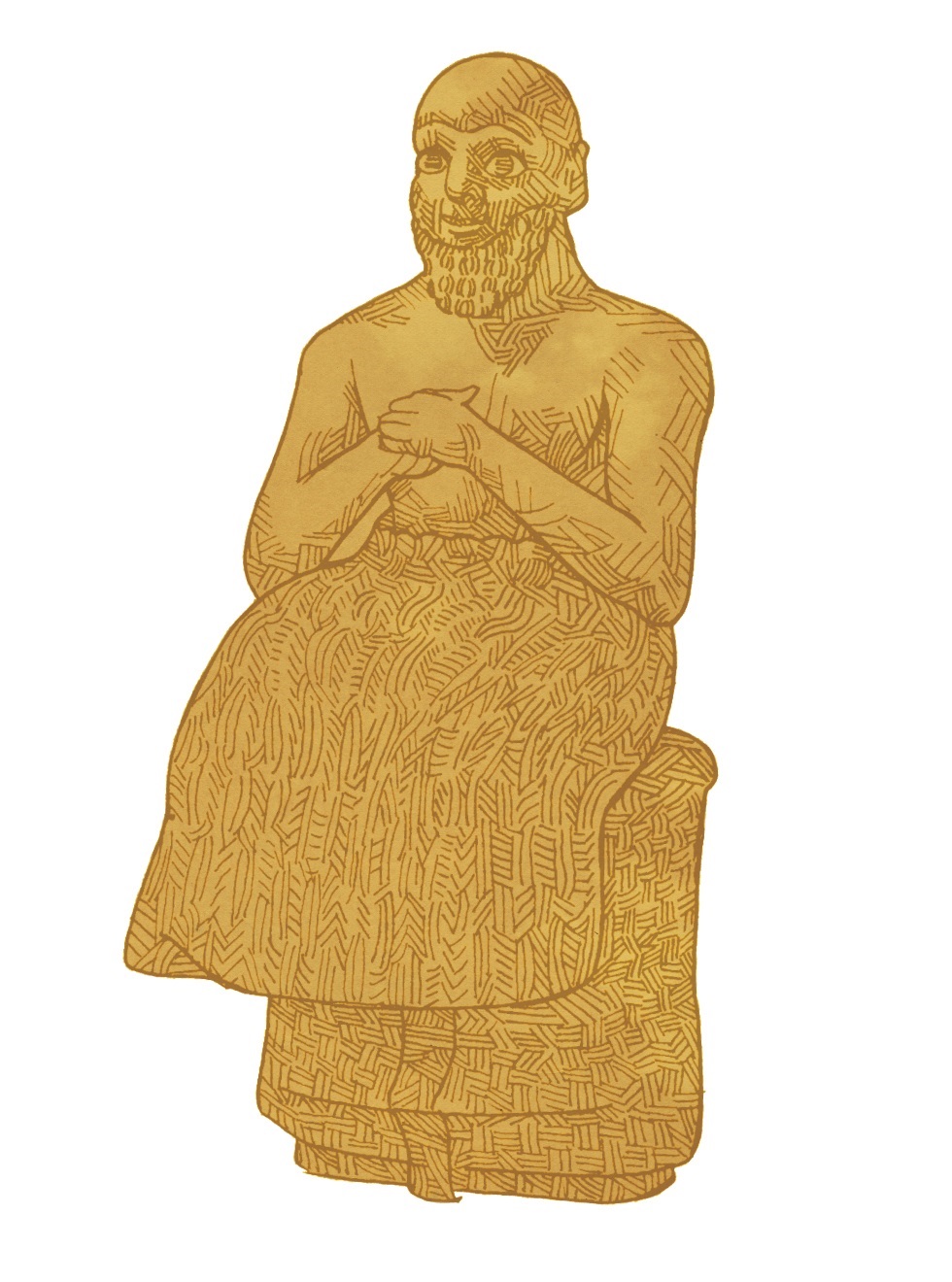 Statue of Ebih-Il, drawing by Simeon Goa, © Journal of Hebrew Scriptures
Statue of Ebih-Il, drawing by Simeon Goa, © Journal of Hebrew Scriptures
Editorial Policy & Ethics
In principle, the Journal of Hebrew Scriptures (JHS) endorses the core practices and publication guidelines developed and written by the Committee on Publication Ethics (COPE).
Peer Review Process
The editors of JHS examine each manuscript that is submitted to the journal, to ensure that the manuscript matches the journal’s scope and standards. If the editors deem that the manuscript is acceptable for peer review, the editors send it to at least two qualified scholars in the field of study. The review process is “double-blind,” in that both author(s) and reviewers are kept anonymous to each other. Reviewers are asked to evaluate the manuscript with regard to its originality, methodological rigorousness, and potential to advance research in its particular field. Based on the reviewers’ reports, the editors make the final recommendation to the author(s) concerning the manuscript’s potential for publication. Editors aim to complete the entire peer review process within four months of a manuscript’s receipt.
Responsibilities of Editors
The editors of JHS will:
- Evaluate manuscripts solely on the basis of intellectual content.
- Not discriminate against individuals or groups on the basis of race; colour; ancestry; place of origin; religious beliefs; gender, gender identity and gender expression; physical disability; mental disability; marital status; family status; source of income; sexual orientation; age; political beliefs; or any other groups as amended from time to time (as per the University of Alberta’s Discrimination, Harrassment and Duty to Accommodate Policy).
- Maintain objectivity in reviewing manuscripts, providing authors with constructive feedback that is free of personal criticism.
- Maintain confidentiality with regard to the identities of authors whose manuscripts are under review. In rare circumstances, editors may share information about an author with members of the editorial advisory board and/or potential reviewers, but only with the express written permission of the author.
- Ensure that reviews of manuscripts are “double-blind” (i.e., the identities of both authors and reviewers are held in confidence); and that, whenever possible, each manuscript submission is reviewed by at least two qualified peer reviewers.
- Not request fees of any kind in exchange for the submission or editing of a manuscript; nor will editors accept funds, goods, or services of any kind in exchange for publishing a manuscript.
- Take responsive action in cases of malpractice, as per COPE guidelines.
- Reserve the right to accept or reject manuscripts, although final decisions will be based primarily on peer reviews.
Responsibilities of Peer Reviewers
Reviewers of manuscripts submitted to JHS will:
- Provide reviews in a timely fashion that does not unnecessarily lengthen or hinder the peer review process.
- Provide accurate and objective reviews that contain constructive feedback and are free of personal criticism.
- Provide meaningful feedback that contributes to the academic rigour of the paper and that assists the editors in making editorial decisions.
- Identify instances of unacknowledged sources within the manuscript to the best of their abilities.
- Alert editors of any potential conflicts of interest in reviewing a manuscript, including conflicts related to the author(s) of a manuscript, content of a manuscript, or funding sources related to the study.
Review Essays
Starting with Volume 21 (2021), JHS will be publishing article-length reviews of books. These review essays can be either submitted to the journal or solicited from its editors. The following guidelines apply to all the review essays considered for publication:
- Review essays must offer fair and constructive criticism, in order to move the scholarly discussion further. Essays providing insufficient engagement with a given work will not be considered for publication. Likewise, essays which are unnecessarily critical, or excessively laudatory, will not be considered for publication.
- Each review essay will be peer-reviewed by at least one reader. As part of this process, revisions may be required from the author(s) before the essay is published.
- The editors of the journal are entitled to refuse publication of a review essay, even if that essay has been solicited by them.
- In principle, review essays published in the journal will range between 2,000 and 6,000 words (including footnotes).
- At the moment, review essays will be published only in English. Authors are responsible for ensuring the academic and linguistic standards of their essay before submitting it to the journal.
- JHS will not publish responses to review essays.
- As per the journal’s standard policy, a review essay can no longer be edited once it has been published.
- Authors are and will always remain solely responsible for the contents of their review essays.


